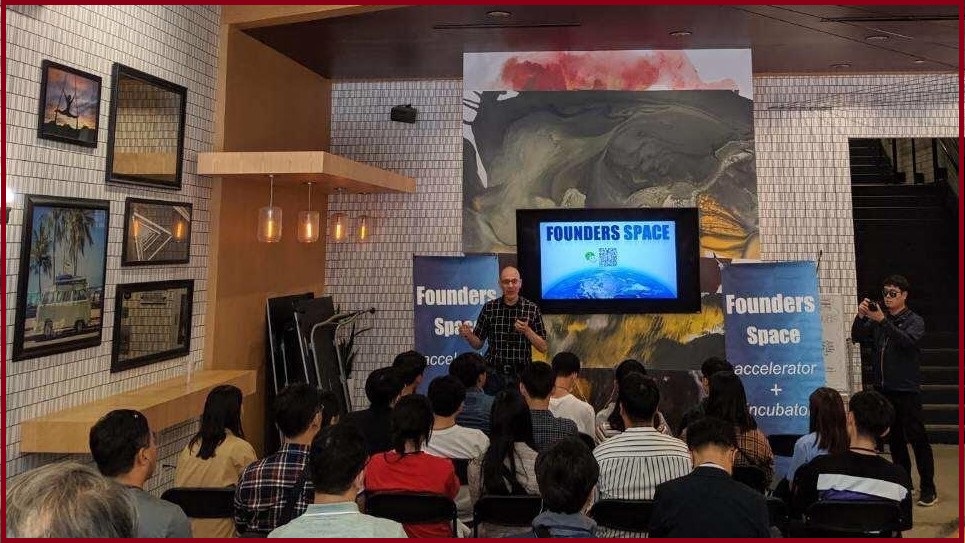Exposing people to community sports programs increases their participation in those programs – so why shouldn’t the same be true for entrepreneurship?
By establishing a business incubator within its premises, Sydney’s Campsie RSL is determined to find out.
Established in partnership with global start-up incubator Founders Space, the RSL’s new Technology & Innovation Learning Hub (TILH) will cater for entrepreneurs within the Canterbury-Bankstown area of Sydney’s south-west.
Australia’s “very unique” RSL network – which has no parallels in the US – provides community-focused environments that “bring people together, including business people, from all walks of life,” Founders Space CEO Steve Hoffman told Information Age.
“They have a revenue source and are all non-profit, so they are all about helping the community.”
“And they have deep business connections within each of the regions where they operate– so to leverage those to help local people in the community is really an excellent opportunity.”
With around 20,000 members at Campsie RSL and over 1,000 facilities across NSW alone, the potential reach of RSL-based entrepreneurship programs is vast.
Community-minded incubator participants can leverage the existing facilities of a well-established, community-minded organisation that already has a solid revenue source from its gaming, entertainment, food, and drinks.
Initially established within a former auditorium within the RSL’s Chester Hill premises, the hub will have typical incubator accoutrements including a presentation area, hot-desking facilities, and high-speed wi-fi.
The four-site Campsie RSL network – consisting of Campsie RSL, Club Belmore, Chester Hill RSL and Chester Hill Bowling Club – also offers training space that can be used where needed.
Tapping into a global ecosystem
Yet physical facilities are just the start: TILH will also leverage the RSL’s extensive community connections to provide a supportive space where entrepreneurs can meet like-minded people.
This approach has been proven to foster local innovation in the past – and provides a base from which entrepreneurs can potentially take their ideas global.
“We work at a deeper level to not only educate entrepreneurs but to really set up a place for them and help them tie into the global start-up ecosystem,” Hoffman explained.
“The RSLs have a lot of connections locally and we complement them because we work all over the world, so we see things that local entrepreneurs and business people might not even know exist.”
“Our goal is to not only help local entrepreneurs succeed locally, but for those that have potential to take their products global.”
TILH participants will get access to a Founders Space network that spans 50 partners in 22 countries, leveraging years of experience as an incubator and accelerator that has already seen Hoffman and his team help hundreds of innovative businesses.
The support of Founders Space helped TILH become a reality after refining the idea over time, Campsie RSL Innovation and Community Outreach Officer Colin Farrell said.
“The idea is to get more funds channelled into the communities,” he explained, noting that the program gels with the RSL’s corporate social responsibility objectives.
“We want to extend from philanthropy to answering the community’s problems, helping the community become more self-sufficient and increasing employment in the area,” he said.
“The great thing Founders Space does is to bring that carrot” of tapping into innovation networks in Silicon Valley and elsewhere around the world, he added.
The courage to innovate
The program is an extension of Campsie RSL’s ClubGRANTS and seed funding programs that support “innovative and actionable ideas designed to solve local community problems”, CEO Craig Love said in announcing the partnership.
“This will be the new opportunity for any person, club or organisation that could shape the future of our local community.”
That community is invariably brimming with ideas, Hoffman added, but experience has shown that many would-be entrepreneurs hesitate to act on their innovative ideas until they see others doing the same around them.
“When you see a lot of people involved in sports you will do it,” he explained, “whether by participating or just supporting a sports team.”
“We want that same sort of feeling, but for entrepreneurialism and start-ups – because people tend to take more risks when they feel secure and feel support.”
“Doing it alone, all by themselves and isolated, takes a special type of person, so we want to build little cultures within clubs like Campsie RSL, where people can come and feel they’re not alone.”










